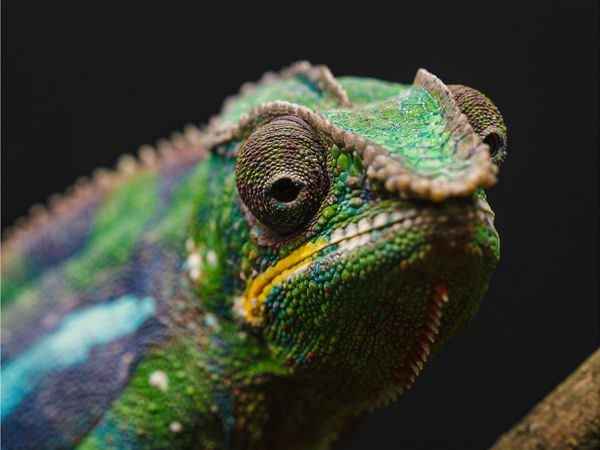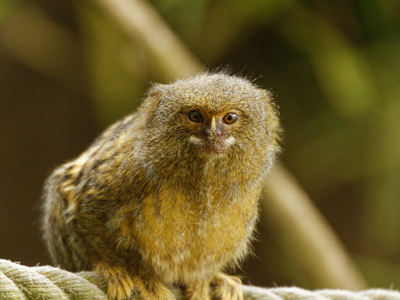
Pygmy marmoset
Pygmy marmosets are New World monkeys, a term describing monkeys from South and Central America. They are the smallest monkey at just 13cm and newborn infants are only the size of the head of a toothbrush! Their fur is a mixture of grey, black and orangey colours. Like all marmosets and tamarins they have claws instead of nails (except the big toe) which helps them to grip onto bark when climbing trees.
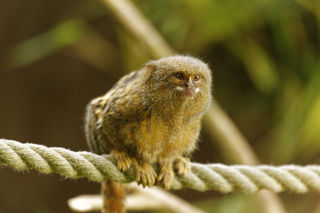
Pygmy marmosets are a very vocal species with up to 15 different calls. They communicate with other group members through facial expressions, posture and a high-pitched trilling call.
They live in family groups of between five and nine individuals with one male, a female and their offspring. Only one female will breed in the group producing twins twice a year. Infants are cared for by everyone in the group. It is the males who will carry the infants, returning them to the female for nursing. The infants are totally dependent on their parents for the first two weeks and are weaned fully at three months old.
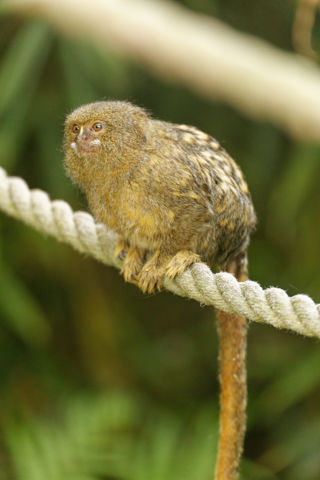
Marmosets have special teeth to allow them to gouge holes into trees for tree sap. This is the main part of their diet. Some tamarin species will form close associations with pygmy marmosets for access to the tree sap holes. They will also eat insects and fruit.
The biggest threat to pygmy marmosets is the pet trade. They are still relatively common throughout their range and have the ability to live in fragmented forest close to settlements.
Key Facts:
Conservation Status: Least Concern
Distribution: Bolivia, Brazil, Colombia, Ecuador, Peru
Habitat: Tropical Forest
Diet: Fruit, Gum, Insects
Height: 13cm
Weight: 120 – 130g
Gestation: 130 – 140 days
No. of young: 2
Life Span: 16 years
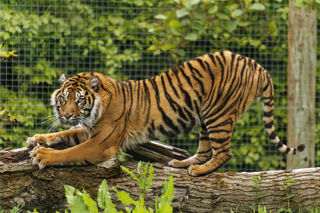
SUPPORT OUR ANIMALS
If you're looking for an alternative way to donate to Twycross Zoo, you can help support our animals and our zoo keepers by purchasing something from our Amazon Wishlist!
Updated regularly by our zoo keepers, the items on the list help to provide enrichment for our animals and keep their habitats well maintained.
Every donation helps us as a conservation charity.
